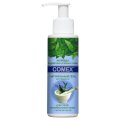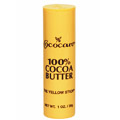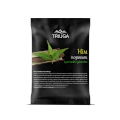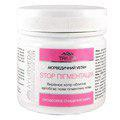 Even if skincare ingredients are extremely effective individually, this does not mean that they are safe to mix. Certain combinations of skincare products and ingredients are highly inadvisable because they may do more harm than good. Let us tell you which skincare ingredients you should not mix if you want your skin to be healthy.
Even if skincare ingredients are extremely effective individually, this does not mean that they are safe to mix. Certain combinations of skincare products and ingredients are highly inadvisable because they may do more harm than good. Let us tell you which skincare ingredients you should not mix if you want your skin to be healthy.
There are three general rules for combining active ingredients in skincare. First, the ingredients should not uncontrollably boost each other’s effect. Second, they should not neutralise each other. Third, they should not have opposite effects.
If one or several of these rules are violated, it can result in skin irritation, inflammation, flaking or dryness. In the best case scenario, there will be no side effects, but the product simply won’t work as it is supposed to. However, this is only true for relatively high concentrations of “conflicting” ingredients because a low amount of an incompatible ingredient usually does not affect the main active ingredient.
Retinol and Retinoids
Retinol (vitamin A) in its various forms is a very popular ingredient in skincare products, but it is somewhat of a “loner” in the sense that it does not mix well with most other ingredients. Retinol has a very strong effect and can cause side effects when combined with other potent active ingredients. Therefore it is usually not recommended to mix retinol with AHA or BHA acids, sulphur, zinc, and unstable forms of vitamin C.
AHAs and BHAs
Similarly to products containing retinol, skincare products with alpha or beta hydroxy acids that have an exfoliating and rejuvenating effect should be used “solo” in order to prevent possible side effects. If you intend to combine organic acids with other active ingredients, you should keep in mind that they do not mix with essential oils, peptides, ethanol, and probiotics. It is also not recommended to combine acid-based products with facial scrubs, enzyme peels, and face cleansers with harsh surfactants such as SLS or SLES.
Vitamin C
There are several forms of vitamin C used in skincare products. They include, for example, ascorbic acid, sodium ascorbyl phosphate, magnesium ascorbyl phosphate, socium ascorbate, calcium ascorbat, ascorbyl palmitate, and others. Different types of vitamin C have different levels of stability. Stable vitamin C can be combined with practically any other skincare ingredient, while unstable forms do not mix with peptides, AHAs and BHAs, retinoids, niacinamide, and probiotics.
Niacinamide (Vitamin B3)
Niacinamide should not be combined with alpha or beta hydroxy acids when used in skin repairing products. It is also undesirable to combine skincare products containing niacinamide with unstable vitamin C because this combination can lead to skin irritation. Niacinamide also doesn’t mix with oils, waxes and silicones because these ingredients render it ineffective.
Peptides
Peptides mix well with most active ingredients except for acids (AHAs, BHAs and unstable vitamin C), which can reduce their effect. It is also not recommended to combine peptide-based skincare products with products formulated with occlusives (waxes, paraffin, silicones) because occlusive products create a protective barrier on the skin surface, preventing peptides from penetrating into the skin.
Salicylic Acid
Salicylic acid is a popular anti-acne ingredient. Some people may find it tempting to combine it with zinc, another effective remedy for inflammation and acne breakouts. However, mixing salicylic acid and zinc is highly inadvisable because they can react and produce zinc salicylate, which is a skin irritant.
The basic rules for combining active ingredients in skincare help to avoid unwanted skin reactions and make sure that each formulation remains 100% effective. However, there are a few things you need to take into account in addition to the compatibility of particular skincare ingredients: the peculiarities and needs of your skin, the working concentration of active ingredients, the time of exposure of each product, and more.
Because of this, most beauticians recommend not to use several products with potent active ingredients at the same time. If you want to include two or more such products in your skincare routine, try using one of them in the morning and the other in the evening, or make a schedule where you use different skincare products on different days of the week, then stick to the schedule no matter what.
In our online shop Organic Store, you can find a wide range of natural and organic skincare products at reasonable prices. All of them are formulated with a carefully balanced combination of active ingredients for safe and effective skin care. Check out our selection of moisturisers, face masks, serums, gels, face cleansers, and other skincare products from trustworthy manufacturers.
Skincare Products in Our Store
Comex Natural Facial Cleansing Gel for Dry and Normal Skin, 150 ml |
Cococare 100% Cocoa Butter Stick, 28 g |
Triuga Neem Powder, 50 g |
Triuga STOP Pigmentation Ubtan, 90 g |
